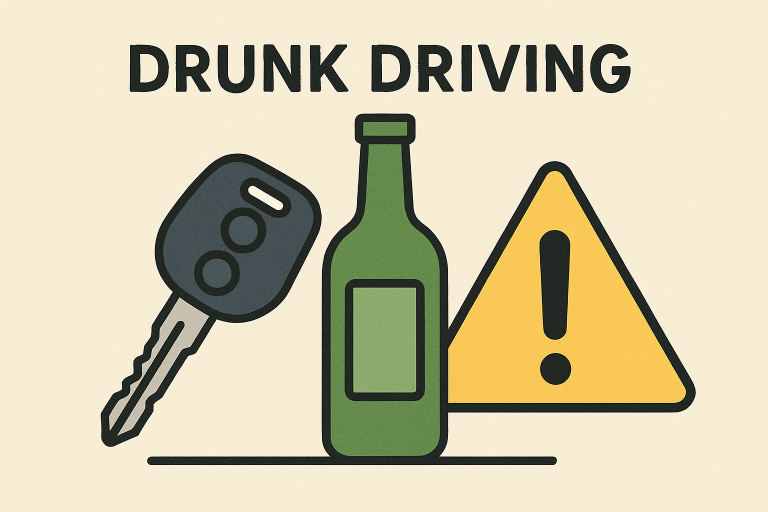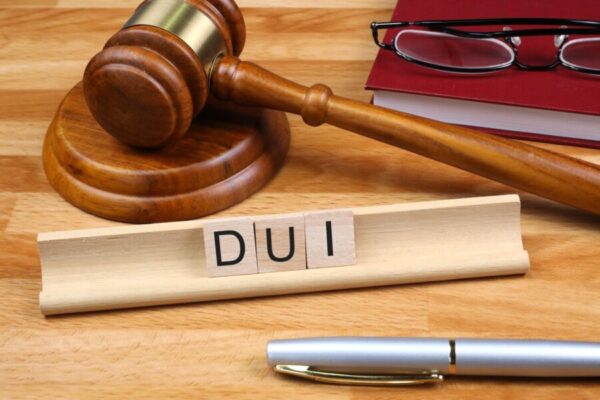Contents
Table of Contents
- What Is a DUI and How Is It Defined?
- Common Misconceptions About DUI Charges
- Understanding Blood Alcohol Limits and Laws
- Potential Penalties for a DUI Conviction
- The Legal Process After a DUI Arrest
- Possible Legal Defenses Against DUI Charges
- How a DUI Conviction Impacts Daily Life
- Education and Prevention Strategies for DUI
What Is a DUI and How Is It Defined?
Driving under the Influence (DUI) is a serious violation that involves operating a vehicle while impaired by alcohol, drugs, or other substances. Each state establishes standards for determining impairment and sets strict penalties to protect public safety and reduce roadway risks. In fact, some states also recognize prescription and even over-the-counter medications as potential causes of impairment. For those seeking clarity on these rules, resources such as Arizona DUI FAQs provide helpful insights into how the laws are applied and enforced.
Understanding local definitions and procedures is vital, as even minor differences can impact one’s legal standing if pulled over. Those seeking more detailed, jurisdiction-specific answers about DUI law and process can visit the NHTSA’s Impaired Driving Laws page, which provides a well-organized collection of commonly asked questions about DUI penalties, defenses, and procedures, particularly relevant for all drivers.
Common Misconceptions About DUI Charges
Many individuals mistakenly assume they must be legally “drunk” to be charged with DUI, but impairment can be cited even if blood alcohol content (BAC) is below the statutory limit. Officers often use other evidence—such as erratic driving or failed field sobriety tests—to justify an arrest. Another frequent misconception is that sleeping in a parked car is always a safe alternative. Possessing the keys in the driver’s seat may still result in prosecution.
Age, weight, and even tolerance do not exempt someone from legal consequences if their ability to safely control a vehicle is questioned. Knowing how “impairment” and “control” are defined in your area is essential to avoid inadvertently violating the law.
To further clarify the science behind impairment, the National Highway Traffic Safety Administration offers statistics and educational materials on how alcohol and drugs affect driving ability, and what behaviors officers look for during traffic stops.

Understanding Blood Alcohol Limits and Laws
Across the United States, the legal BAC limit for most non-commercial drivers is 0.08%. However, lower limits often apply to commercial drivers (usually 0.04%) and underage drivers, making it possible to incur a DUI at much lower levels depending on licensing and age. BAC is influenced by several factors, including the rate of alcohol consumption, body composition, sex, and metabolic rate, contributing to unpredictability in how quickly someone reaches the legal threshold.
Beyond the numbers, “zero-tolerance” laws for underage drivers and “implied consent” rules—which require drivers to submit to BAC testing when lawfully stopped—add complexity, and penalties for refusing tests can be nearly as severe as those for failing them. It’s crucial to recognize that impairment can occur below the legal limit, especially when combined with fatigue, medication, or other substances.
Potential Penalties for a DUI Conviction
DUI penalties are severe, and they discourage risky driving and protect communities. Typical consequences for a first-time conviction include hefty fines, mandatory license suspension, community service, and compulsory attendance at alcohol education classes. Some states may require an ignition interlock device, which prevents the vehicle from starting unless the driver provides an alcohol-free breath sample.
Penalties are substantially harsher for repeat offenders or when aggravating circumstances are present—such as causing an accident while impaired, having an extremely high BAC, or endangering minors. In these cases, jail time, extended probation, and larger fines become likely. Resources like the Centers for Disease Control and Prevention provide useful overviews and statistics for comparing state-by-state penalties.
The Legal Process After a DUI Arrest
Being arrested for DUI initiates a complex legal process. After a traffic stop and field sobriety testing, law enforcement may conduct breath, blood, or urine tests to determine intoxication. Arrested individuals are booked and may face immediate administrative penalties, such as an on-the-spot license suspension. The ensuing criminal process involves arraignment (where charges are formally presented), pre-trial hearings, motions, plea negotiations, and, if necessary, a trial.
Individuals have legal rights at each step, including the right to counsel and to challenge the stop or testing procedure. Consulting a qualified attorney is highly recommended, as DUI law can be technical, and early mistakes might worsen the case outcome or limit available defenses.
Possible Legal Defenses Against DUI Charges
Challenging Procedures and Evidence
Several defense approaches can be practical in DUI cases. One common strategy involves challenging the legality of the traffic stop—if law enforcement did not have reasonable suspicion, any evidence gathered may be inadmissible in court. Another frequently used defense is questioning the BAC testing equipment’s calibration and proper operation, or how the field sobriety tests were administered.
Procedural Mistakes and Rights Violations
Defendants may also challenge charges based on mishandled evidence, lack of probable cause, or Miranda rights violations. If documented convincingly, procedural errors can lead to dismissal or reduction of charges. The assistance of a skilled defense attorney is invaluable for navigating complex statutes and court rules in these situations.
How a DUI Conviction Impacts Daily Life
Even beyond courtroom penalties, a DUI conviction can have lasting and far-reaching consequences. Car insurance rates often spike, and insurance providers may even drop individuals after a sentence. Employment prospects can dwindle, particularly for jobs that require driving or conducting background checks. Some professional licenses may be revoked or restricted.
Travel restrictions are another overlooked repercussion, as countries like Canada may refuse entry to individuals with DUI convictions on their record. Additionally, the social stigma surrounding a DUI can cause strains in personal and professional relationships and make finding housing more difficult.
Education and Prevention Strategies for DUI
Preventing DUI is a shared responsibility between individuals and communities. On a personal level, planning—including using designated drivers, public transportation, or ride-sharing—can keep impaired drivers off the road. At the community level, public awareness campaigns and educational initiatives, such as those from Mothers Against Drunk Driving (MADD), have helped shift cultural norms and significantly reduce DUI-related fatalities.
Comprehensive prevention also includes youth education, regular policy updates, and convenient access to transportation alternatives. Ultimately, fostering a culture of accountability and responsible decision-making saves lives and spares many from the devastating impacts of a DUI.




